Bernd Becher
was born in 1931. His wife, Hilla Becher, was born in 1934. They were lifelong German conceptual artists and photographers who worked as a collaborative duo. Their books and photographic images were of industrial buildings and structures, sometimes shown in a grid format.organized in grids.In fact, the German artistic movement known as the ‘Becher school’ is attributed to them. Their influence in what was a very strict mono graphic movement has been long standing. They have been awarded both the Erasm Prize and the Hasselblad Award.
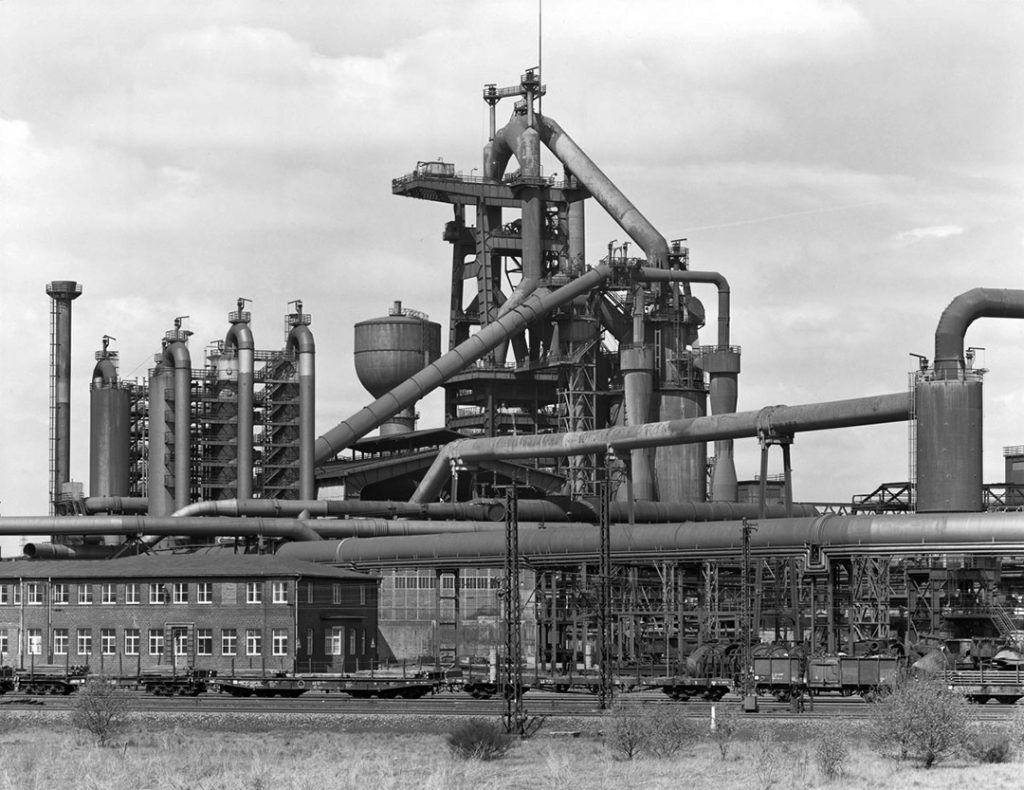
Bernd Becher and Hilla Becher – Finding Industrial Art
Bernd Becher and Hilla Becher met while both freelancing mostly product photography for the Troost Advertising Agency in Düsseldorf, and married in 1961. But they first met as students in 1957. Working with an 8×10 large format camera, they started photographing the decaying industrial complex of a post war Germany. Mostly steel mills and mining structures. They became enamored with the shapes and perspectives of various details of these structures,….piping, cooling towers, gas tanks and coal bunkers. The fascination came from the obviously architectural details encountered in structures that should have been merely utilitarian.
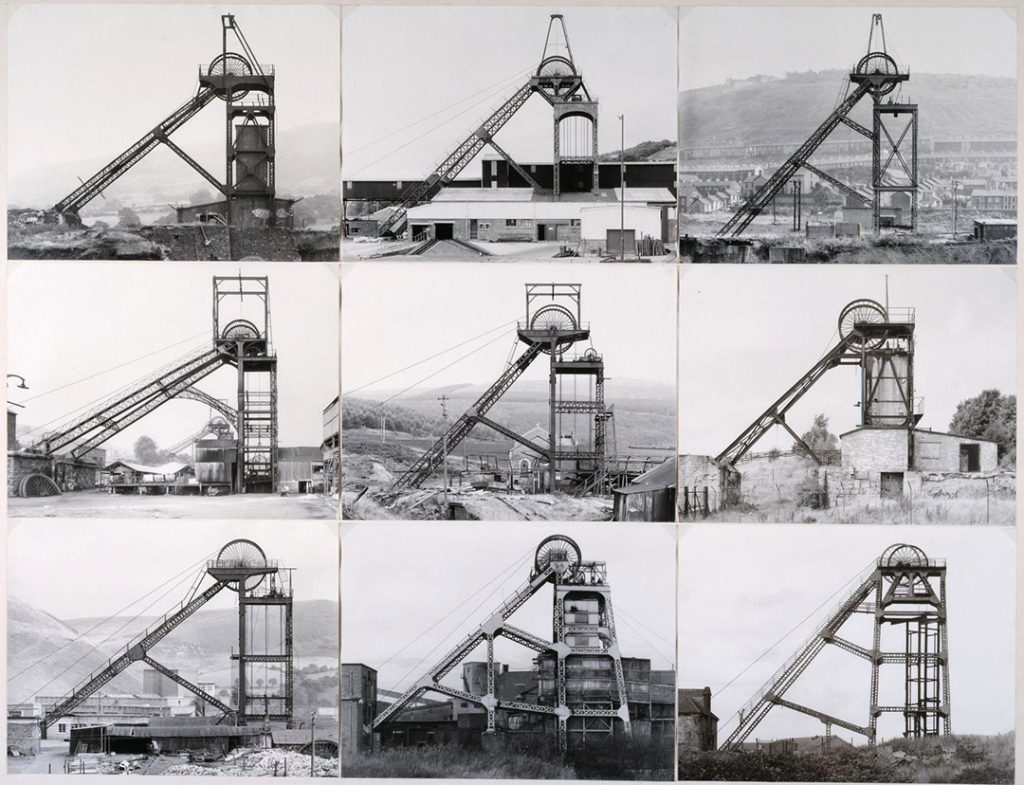
One of their shooting criteria was to shoot on overcast days, avoiding shadows, and producing images of these massive structures as if in a giant soft box. The these y perfected the ability to view spanning buildings as if set on a tabletop, avoiding any external details. The exhibitions, books and one mindedness of their work made it instantly recognizable. They had set their work and style as a standard for decades to come. Everything from barns, water towers, coal tipples, cooling towers, grain elevators, coal bunkers, coke ovens, oil refineries, blast furnaces, gas tanks, storage silos, and warehouses.
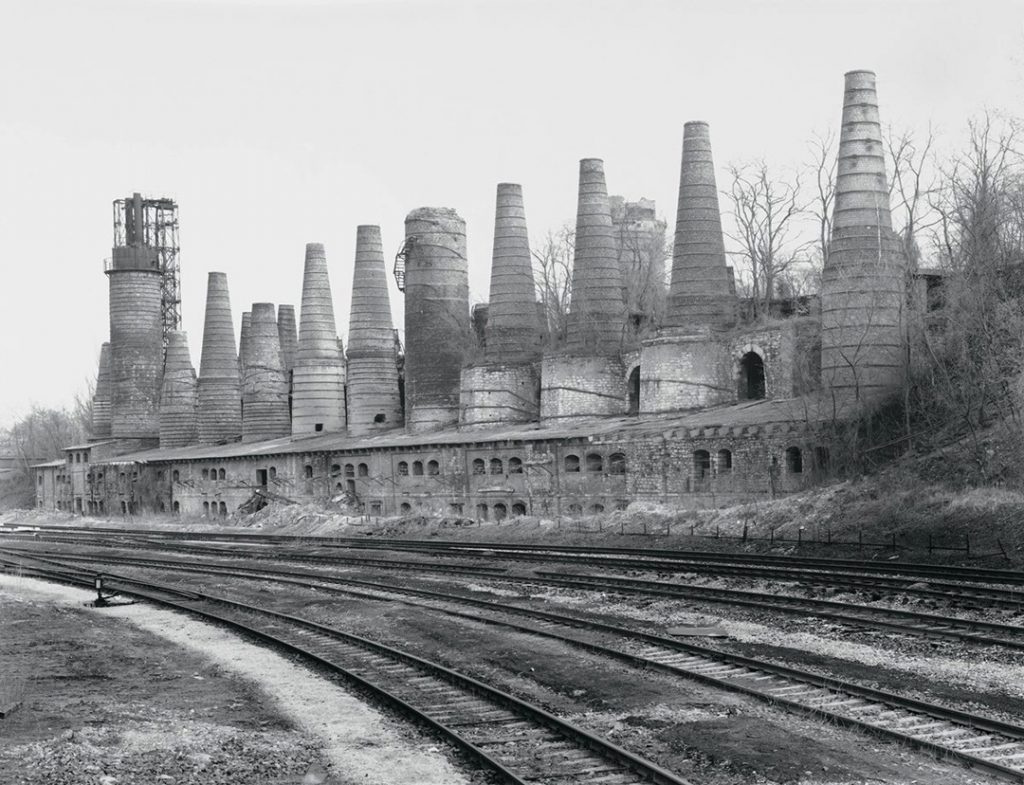
Framework Houses and other Books
Most of their books from the 60’s and 70’s, including a two decade project published as “Framework Houses” in 1977 are rare, but well worth viewing when the opportunity rises. They were at the forefront of actually preserving many of these industrial landmarks. By the mid-sixties, their presentation seemed to solidify. Most of their work was silver gelatin 24″ x 24″ and above, including singular images.
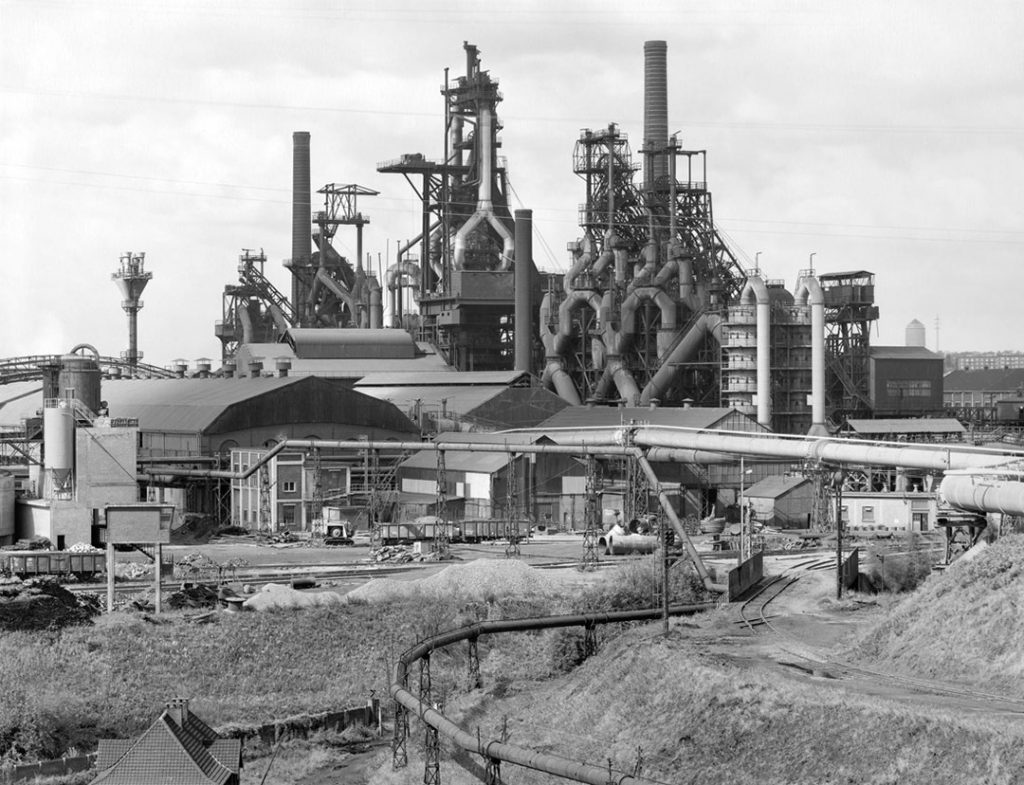
They also photographed outside Germany, including Great Britain, France, Belgium and the United States. In 1966, they undertook a six-month journey through Great Britain, taking hundreds of photographs of the coal industry around Liverpool, Manchester, Sheffield, Nottingham and Wales, a fast disappearing landscape. In the mid 70’s they made it to America, including New Jersey, Michigan and Pennsylvania. They found a range of industrial structures, from coal breakers to wooden winding towers.
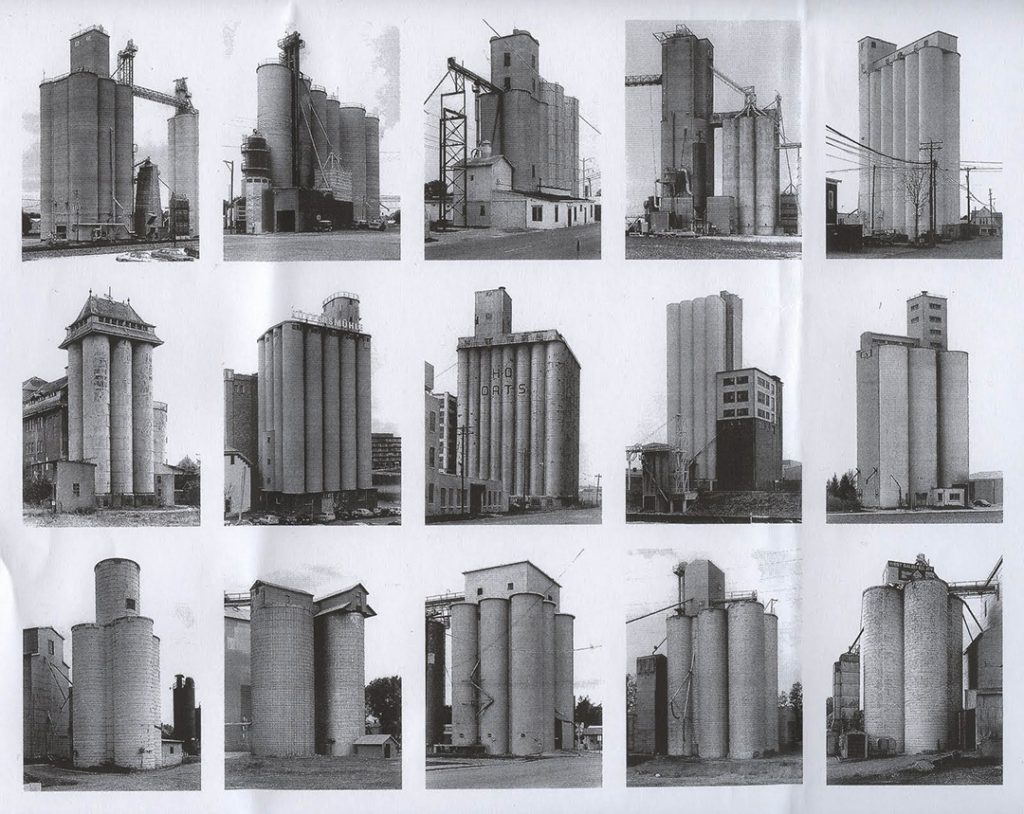
Influencing the New Generation
In 1976, Bernd Becher started teaching photography at the Kunstakademie Düsseldorf and remained on the faculty until 1996. Before him, all photography had been excluded from what was largely a school for painters. Former students of Bernd’s included Andreas Gursky, Thomas Ruff, Thomas Struth, and many others. Bernd Becher died in 2007, and Hilla died in 2015. If you can collect any of their work or books/monographs, I highly recommend you do. Find 8×10 camera.

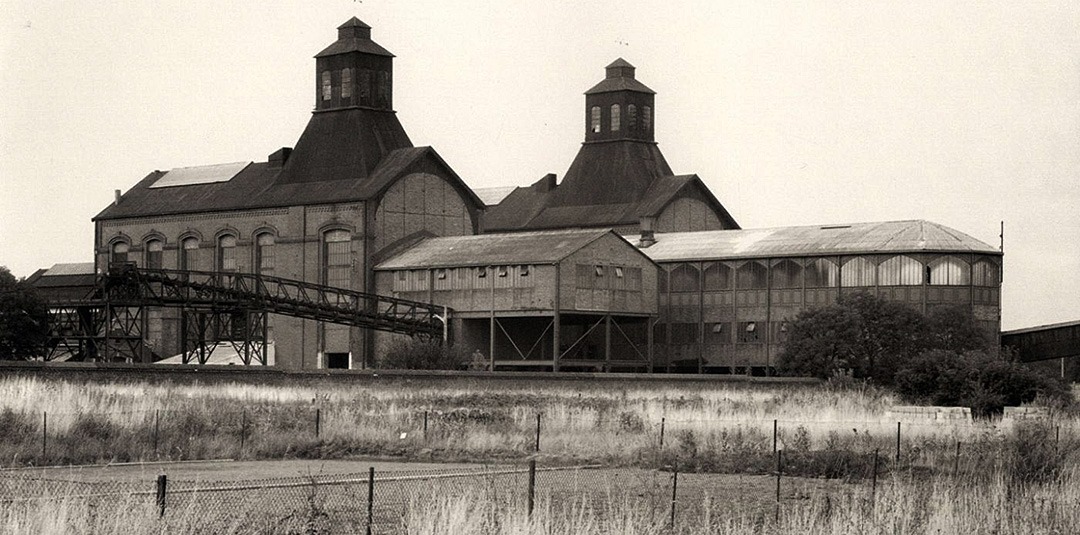
A couple of years ago now I saw their work at the San Francisco MMoA. Was my favorite body of work there. There were some great prints, but seeing a collection of theres was an experience.
Hi Mathias,
The thing I want people to understand. Their work is phenomenal, but does not translate well to a computer screen. I hope as many people as possible take any opportunity they get to see the work in person. (and the work of quite a few other photographers)
Federico